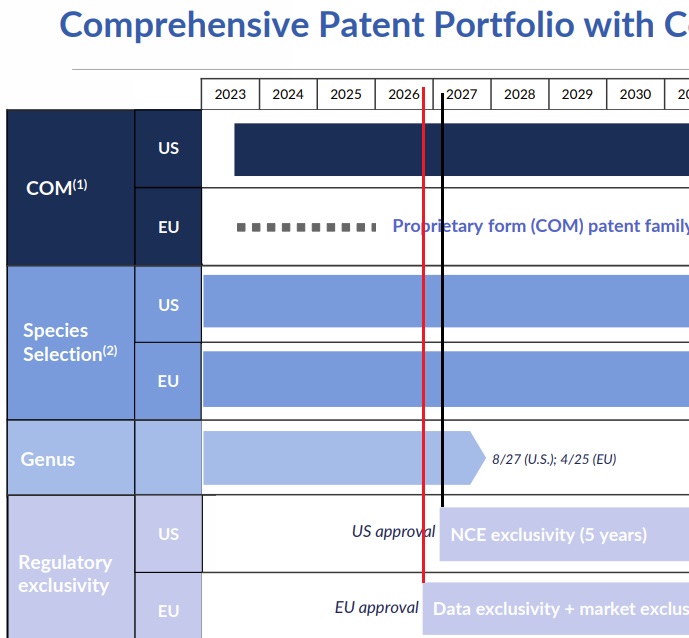That’s really interesting, and I hadn’t heard of a link between CoQ10 and Lp(a) before.
I found the original study (Serum concentration of lipoprotein(a) decreases on treatment with hydrosoluble coenzyme Q10 in patients with coronary artery disease: discovery of a new role - PubMed) and it’s quite small, and pretty old (1999).
I found a 2016 analysis which pooled together several trials (Supplementation with coenzyme Q10 reduces plasma lipoprotein(a) concentrations but not other lipid indices: A systematic review and meta-analysis - PubMed) They found a small decrease in Lp(a) with CoQ-10 treatment, but no dose-response relationship. The decrease in Lp(a) was larger if the patients had a higher Lp(a) level to begin with. To me, this looks like a phenomenon we call “regression to the mean” where outliers tend to move towards the average over time. I.e. if somebody has high Lp(a) it’s more likely to go down than to go up.
Honestly, I think the evidence is not very strong. There are a few supplement company-sponsored trials, a study out of India, another out of Iran. Just not the most reliable type of evidence. I think CoQ-10 is safe, and not too expensive, so maybe worth a try. But I don’t think it’s going to move the needle.
If you look at my previous post in this topic, there are 5 drugs right now in trials, where an injection every few months is lowering Lp(a) by 80% or greater. That’s what could make a big difference to the thing we care about, which isn’t the Lp(a) number itself, but rather the progression of atherosclerosis.
2 Likes
I am on a forum where some are combining Cavadex with nattokinase. However I am not convinced. Thanks for your input (love your nametag!). BTW read this article re keto and Lp(a) Does a ketogenic diet lower a very high Lp(a)? A striking experiment in a male physician - PMC
1 Like
Neo
#64
Another example that triangulates
The DELTA (Dietary Effects on Lipoproteins and Thrombogenic Activity) trials observed that reducing saturated fat, replaced by complex carbohydrates, resulted in approximately a 15% increase in Lp(a) levels.
https://www.atherosclerosis-journal.com/article/S0021-9150(22)00183-6/fulltext
@Davin8r - did you ever look into diet impact?
1 Like
Pelarcarsen was the only one I can find that might have had a chance for approval this year, but phase 3 completion was pushed out to 2026.
Olpasiran phase 3 completion - 12/26, so nothing until 2027 at the earliest
Lepodisirin phase 3 runs until 2029
So, no.
2 Likes
Neo
#66
@A_User et al
I found:
obicetrapib could potentially receive its first regulatory approval in late 2025 or early 2026
It’s not “for” Lp(a, but in the trials lowered Lp(a) by about 50%.
@adssx - you have any more sense on when it may be approved in Europe?
4 Likes
A_User
#67
Okay, but how does that affect apoB, how does the total risk change? An increase in Lp(a) can be offset by a much larger decrease in apoB, maybe if it’s six times the absolute number.
1 Like
Not in the US, unless they radically change plans. US availability is targeted for 2027, EU 2026.
You should listen to recent tech conference presentations hosted on the nams website.
2 Likes
Neo
#69
Thank you for information
Neo
#70
The apoB can be felt with with a powerful choice of generally safe meds
So why choose, one could perhaps both crushed apoB and somehow lose Lp(a) over the next 2-3 before Lp(a) lowering drugs available
A_User
#71
I don’t disagree with anything that changes total risk in positive direction.
If anything replacing saturated fat with polyunsaturated fat will have a greater decrease of apoB anyway.
1 Like
adssx
#72
3 Likes
From January presentation:

3 Likes
Thanks for sharing. My cardiologist may have been a bit optimistic!
With your up-to-date information, do you have any idea about the indications for these drugs? I hope it’s not just limited to something like secondary prevention post-MI, but would be indicated for those with high Lp(a) for primary prevention.
A_User
#75
As far as I remember, obicetrapib was expected to be approved sometime this year for indication of lowering LDL-C like inclisiran.
2 Likes
A_User
#77
There’s a thread about it here as well:
2 Likes
Grok tells me pelarcarsen trial is for secondary prevention. Participants have lpa > 175 nmol/L.
Obicetrapib folks claim pelarcarsen likely to be priced in the $15K range.
1 Like